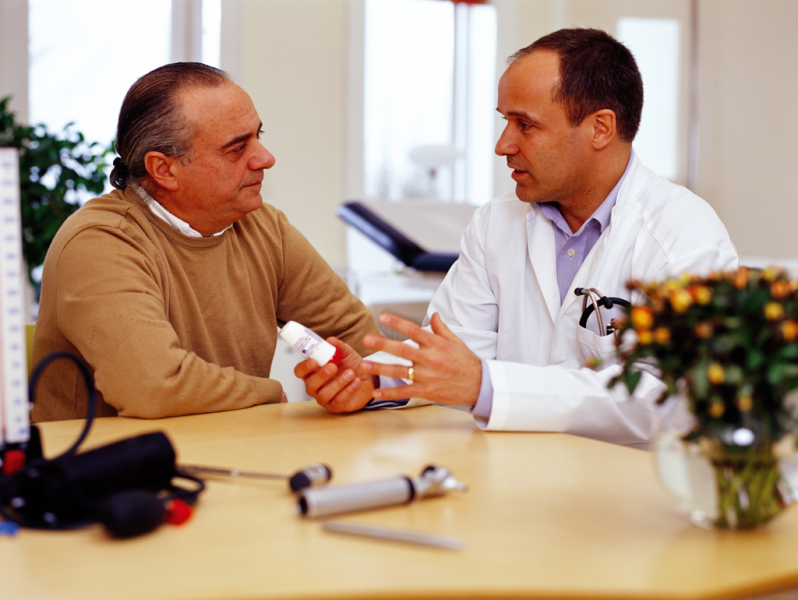He was also sure to record when he was asking the doctor specific questions.
"That was really the most important part for me was when there were questions that I wanted the answer to," says Sommers, who's now 32 and cured of the cancer. "I would record it because a lot of the times, when you hear the answer, you need to let it marinate in your brain for a bit."
The big problem is some patients are recording covertly – without asking or informing their doctors. California law requires both parties to consent to the recording of conversations, both on the phone and in-person, experts say.
Why Record?
Patients might want to record a conversation with their doctor for a number of reasons.
As Sommers experienced, some people are overwhelmed by the amount of information their doctors are sharing with them. Others don't have a great memory, especially for complicated diagnoses and treatment options.
Still others just want an accurate record of their conversation and they find recording to be easier than taking handwritten notes.
"There's this classic scenario of somebody comes home from the doctor and their spouse says, 'what did the doctor say?' and the one who was there says, 'oh, not much,''" quips Dave deBronkart, a kidney cancer survivor who's become a leading voice for the patient engagement movement.
So, What's the Problem?
Whether this practice helps patients comprehend and follow their doctor's advice – or harms their relationship with their doctor – depends on at least one major factor: Did the doctor consent to being recorded?
Dr. Ali Seifi, an assistant professor in the Department of Neurology at the University of Texas Health Science Center in San Antonio, recalls the first time he was recorded without his consent.
About two years ago, he says, he was treating a patient in the intensive care unit who had suffered a head injury in a car accident. He asked the patient's family to come to the hospital for a meeting. As he was showing them the patient's MRI and CT scans and talking about his condition, he says he realized they were recording him.
Seifi remembers thinking: "As a doctor, can I ask them to stop this recording? Or is this their right to do it?"
A Breach of Trust
The general answer, at least in California, is that by law you must get the consent of everyone involved before recording any conversation that common sense tells you might be "private" or "confidential," according to the Digital Media Law Project.
From Seifi's perspective, secret recordings also beg other questions: What is a patient's motive to surreptitiously record? Is there something wrong with the doctor's behavior or attitude? What is the patient intending to do with the recording? Could it be used in a lawsuit?
It's problematic, he says, "because secretly recording means that the patient is not trusting the doctor," says Seifi, who also co-wrote a Viewpoint article on the topic in an April edition of the Journal of American Medical Association.
If a patient asks a doctor if it's OK to record the conversation, and offers an honest explanation for why he's doing it, Seifi says most physicians will give the green light.
Still, he says he's heard from some colleagues who, knowing they're being recorded, temper their advice to protect themselves, he says.
"They try not to discuss in detail everything," Seifi says, because they fear that something they say could be "used against them sometime."
The Best Approach
If you're going to record a conversation with your doctor, the first rule is: #JustAsk if it's OK. Being able to make this request is part of having an open, candid relationship with a doctor, says Jonathan Sommers.
"Just tell your doctor why you want to record it, what you hope to gain from it and I would be shocked if they said no," Sommers says.
Sommers says he's glad that he recorded many of his conversations with his doctors. The recordings were essential during his cancer journey. And, he says, re-listening to them has become a form of therapy.
"When my journey was complete and I was healthy, I actually found it therapeutic to listen to the recordings again, to see how far I've come," he says.
Have you tried recording a conversation with your doctor? Tell us about it in the comments section below or e-mail us at Impatient@scpr.org.

